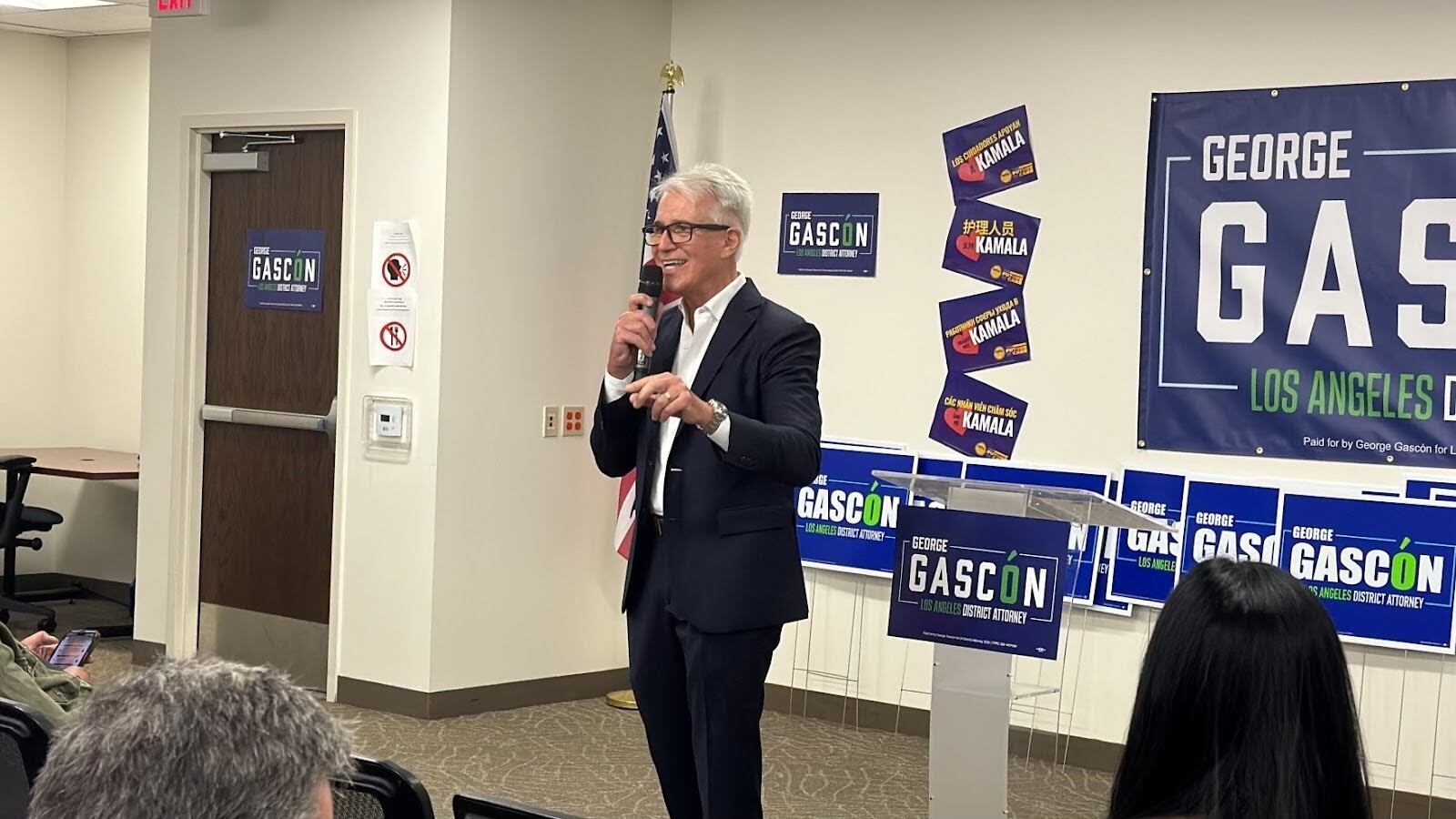California voters sent the state a referendum on crime Tuesday night, voting in favor of Proposition 36 and against Los Angeles County District Attorney George Gascón.
On Wednesday at 3 p.m., “Yes” on Proposition 36 led with 70.4% of the vote and more than half of the ballots counted within the state. Prop. 36 was the first statewide race called by the Associated Press on Tuesday. Once in effect, the law increases penalties for some drug and theft crimes. It also allows felony charges to be brought against anyone convicted twice of theft under $950 or a drug-related crime on their third offense.
In L.A. County, voters opted to elect Nathan Hochman as district attorney, upending Gascón’s first term in office after a failed recall attempt and unpopular policies, including ending cash bail, directing prosecutors away from trying juveniles as adults and prosecuting specific misdemeanors. As of Wednesday at 3 p.m., Hochman led Gascón by a 61.5% to 38.5% margin; Gascón also conceded to Hochman on Wednesday morning.
“It was difficult for the last four years to watch George Gascón destroy the office, lie to the public and go unchecked on a lot of the things he was doing,” said former DA Jackie Lacey, who Gascón defeated in 2020 in an exclusive interview with Annenberg Media. “More importantly, to sacrifice our safety and to hear about it from neighbors and friends… It’s just reaffirming to me that these decisions for who should be DA belong in the hands of voters.”
Lacey said the election was also mirrored across the state with the recall of Alameda County DA Pamela Price in Oakland and the passage of Prop. 36 statewide. Price is the second district attorney in the region to be recalled in the past five years after then-San Francisco DA Chesa Boudin lost his race in 2022.
Boudin was initially elected to replace Gascón in 2020 after the longtime prosecutor served nearly 10 years in the role. Lacey said Boudin’s recall was the first domino that led to Gascón’s loss.
“People always thought that you had to be one or the other – either be tough on crime
or progressive, and those are just false choices,” she said. “I think what most people want is change.”
California voters have voted in larger margins for Prop. 36, which undid portions of 2014′s Prop. 47, which changed the status of some crimes to misdemeanors rather than felonies. These crimes included shoplifting and theft when the value of an item is below $950. Gascón was a co-author of Prop. 47.
Cristine Soto DeBerry, executive director of Prosecutors Alliance Action and a former prosecutor under Gascón in San Francisco, said the timing of Prop. 36 and Gascón’s loss shows the effect of two things on the electorate: the post-pandemic reaction to crime returning and the visibility of crime, even if actual crime numbers are down.
“We saw this when nightly news started covering crime stories, and now Ring cameras and [social media apps] Nextdoor and Citizen in every place you can hear about crime happening,” she said. “It creates a heightened awareness and ubiquitous nature that didn’t exist in the past.”
DeBerry, who wrote the official rebuttal to Prop. 36 featured in voter guides, said with the proposition’s passage, she worries about the law’s effect on treatment services available to Californians. She said the efforts, which began with Prop. 47 in 2014, reallocated resources from imprisoning Californians to programs supporting treatment, victim services and education.
While the proposition’s language may include details on providing treatment, she added, voters may not have known that there is no funding attached to the proposition to do so. Instead, the law repeals previous services already available through Prop. 47.
“Those efforts 10 years ago were an important first step, but they were a building block,” she said. “We knew there was much more to do, and many people have been working to increase the treatment available in our communities … And sadly, this passing will make that even worse.”
The passage of Prop. 36 was promoted mainly to Californians as a measure to fight retail theft, something DeBerry said is important to address, but she wishes it was done through a heightened process to arrest criminals in the act rather than taking action afterward.
Robert Rinivius, the political director of the Family Business Association of California, said he was thrilled to see the results of Prop. 36, for which his organization fundraised and lobbied. He said the results show that changes in prosecuting retail crimes were “desperately needed” and that voters understood what to do when they cast their ballots.
“It’s encouraging that the California people saw through the campaign against Prop. 36. They see the smash and grabs on television, and they see people walking out of stores with things,” he said. “People understood.”
The ballot measure will take effect five days after the California Secretary of State’s office certifies the election, while Hochman will take office in December.
